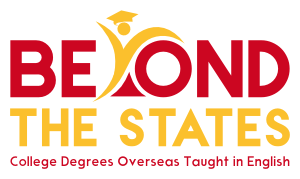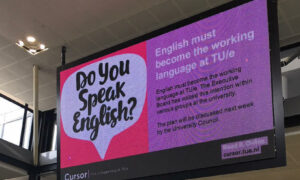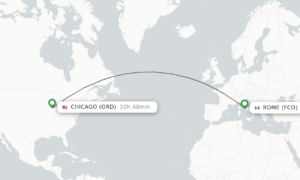About 2 million American children are homeschooled, many from kindergarten right on through high school. We know some sizeable number end up overseas.
So, if you’re headed to Europe and you’re the parents of homeschooled children, let’s look at your options:
- Do you want to continue homeschooling your children in your new country?
- Do you want to transfer them into the new country’s public education system?
- Do you want to have them apply to attend one of Europe’s many excellent college or university options?
 Jennifer and Tom Viemont operate the website BeyondTheStates.com, on which they share their considerable expertise and research about finding European colleges for American students. The tuition costs are lower (often free), the education is equal (often better), the international experience can be a key part of the overall education, and the entrance requirements can be significantly less rigorous than getting into an American school.
Jennifer and Tom Viemont operate the website BeyondTheStates.com, on which they share their considerable expertise and research about finding European colleges for American students. The tuition costs are lower (often free), the education is equal (often better), the international experience can be a key part of the overall education, and the entrance requirements can be significantly less rigorous than getting into an American school.
What if you are homeschooling your child? Do your options diminish?
“We get a lot of inquiries about how being homeschooled factors into the (university) admission process in Europe,” says Jennifer Viemont. “While homeschooling is on the rise in Europe, there are some countries in which it’s illegal (Germany and Sweden) and others where the regulations make it difficult to pursue (Switzerland).
“There are also some countries in which a homeschool diploma would not be recognized due to the laws they have around homeschooling,” Vietmont says. Other countries require an accredited diploma and some require applicants to have their transcripts/diplomas nostrified.”
(Editor’s note: “Nostrification” is granting recognition to a degree from a foreign university.)
The nostrification process generally involves a trip to the Secretary of State’s office or, sometimes, to the embassy.
“Often,” says Viemont, “when dealing with governmental bureaucratic layers, the answer you get to your questions may vary depending on the person you talk to. Thus, I highly recommend that homeschoolers work with agencies that allow you to homeschool and provide accredited diplomas and transcripts for your work.”
She says a few countries (e.g., Norway, Italy, Denmark, The Netherlands) have extra requirements for all American applicants. Applicants either need a certain number of college credits, three or four Advanced Placement (AP) exam scores of 3 or higher – AP scores range from 1 (“not recommended”) to 5 “extremely well-qualified” – or an IB (International Baccalaureate) diploma.
(See Dispatches’s DIY Expat account of getting a student into Dutch University here.)
Italy requires American students without an IB to take AP Italian as one of the tests they submit. “If you’re an American student in a regular school, this is not likely to be a viable option,” Viemont says. “Italian as a language is not offered at many American schools, let alone AP Italian. If you are a homeschool student studying Italian, though, you can take the AP test and then be eligible to apply (assuming you have taken the other AP tests as well).”
Good news about AP tests: “You do not have to take the AP course to take the AP test,” Viemont says. “We’ve found many homeschool students are receiving a rigorous education at home and would easily pass the AP tests.”
However, she points out, the universities of applied sciences in the Netherlands do not have the AP requirements “and there are still an abundance of choices throughout the rest of Europe as well.”
Viemont notes that many homeschool students take courses at local colleges as part of their high school curriculum. “If you accumulate a year’s worth of college credit, you do not need the AP scores,” she says. “It is important to note that most colleges require that these credits are issued by a four-year college, not a school that can only issue associate’s degrees.”
She says members of Beyond the States who have moved from the U.S. to Europe have shared their homeschool experiences. “One of our members moved to Europe and has chosen to homeschool using Oak Meadow (a Vermont-based distance learning school for grades K-12). Their daughter lists Oak Meadow as her school and will graduate with accredited transcripts and a diploma.”
Another member, seeking less-costly options, was looking into places such as Clonlara School, a Michigan school with a special approach to education that offers off-campus and online programs “to foster students’ independence and self-confidence by encouraging them to embrace the responsibility for their own education,” according to the school’s marketing materials,
These schools validate the credits and, after the graduation requirements have been met, issue an accredited diploma.
“Are there extra hoops you will have to jump through as a homeschool applicant? Yes,” Viemont says. “However, I absolutely recommend it, as I think many homeschool students have the qualities needed to succeed as a student in Europe and could thrive in this environment.”















